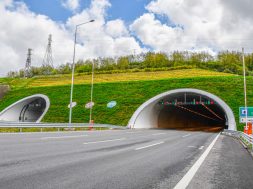Mahindra Lifespaces takes initiatives to help conserve biodiversity

At Mahindra Lifespaces, we are mindful of the risks that climate change, resource scarcity and other environmental issues pose to our business.
The World Economic Forum’s global risk report 2020 ranked loss of biodiversity as one of the top five risks in terms of impact and likelihood over the coming decade. Human activity has wiped out 83 percent of wild mammals, half of all plants, three-fourth of ice-free land and two-third of marine environments. Now is the time to wake up and take inventory of our natural environment – the biodiversity of our planet. The time to move towards embracing the wealth of nature and creating a regenerative economy is now.
At Mahindra Lifespaces, we are mindful of the risks that climate change, resource scarcity and other environmental issues pose to our business. Therefore, we are committed to integrating sustainability in every aspect of our business. Below are some of the initiatives that we have undertaken across our sites:
- At the land acquisition stage, we undertake environmental impact assessment that aids in developing strategies for biodiversity conservation.
- We protect and retain as many trees onsite as possible.
- Landscape is integral to our residential business. It not only enhances the beauty of aproject, but also helps tocreate a microclimate, preserve soil and reduce air pollution. We also protect natural grass and minimise the use of artificial pesticides/fertilizers.
- Create eco habitats and urban forests: Focus on native species and arrest invasive species. We are actively looking at deploying Miyawaki forests across our projects which act as carbon sinks as well as a rich habitat for birds and small animals, while enhancing the air quality.
Sunita Purushottam, Head – Sustainability, Mahindra Lifespaces, “As a responsible real estate developer and pioneer of the green homes movement in India, we are mindful of the impacts of our operations on the environment. We are striving towards being a nature-positive developer by integrating biodiversity conservation, resource efficiency and climate change abatement through all stages of our product.”
One of India’s largest urban forest projects at Mahindra World City, Chennai marks an important milestone in our journey of sustainability
Urbanisation:
Mahindra World City, Chennai is a pioneering integrated city built on the ethos of Livelihood, Living and Life. The city has been designed for holistic and balanced community living at one with nature. It is also home to one of India’s largest and most impactful planned urban afforestation drives. As part of planned efforts to grow the green cover at Mahindra World City, Chennai, 4 lakh saplings have been planted so far across 150 acres using the Miyawaki Method developed by globally renowned Japanese botanist and blue planet award winner Akira Miyawaki.
Thousands of volunteers have come together to plant native species of trees to enrich the biodiversity in MWC Chennai. Over 30 varieties of saplingshas been planted, includingAlbizialebbek, Aegle marmelos, Butea monosperma, Cassia fistula, Cassia roxburghii, and Terminalia bellerica. The survival rate of these trees so far is 95 per cent and after three years of nurturing, they will strengthen by developing trunks and root systems on their own.
The urban forest at MWC Chennai will help reduce the carbon footprint of the surrounding areas as well. Potential environmental benefits to residents and surrounding communities include a reduction in temperature (cooling effect -> quality of life), prevention of soil erosion (this can help reduce damage from rainwater) and a boost to groundwater levels.
MWC Chennai is also India’s first IGBC Gold (Stage 1) certified Green Township and home to corporate India’s first operational SEZ. Its journey of sustainability includes many pioneering initiatives, including an off-grid solar power plant with the capacity to generate 1,16,000 units of clean electrical energy annually and a bio-CNG plant which fuels buses and tractors, and powers street lights within MWC Chennai.
Cookie Consent
We use cookies to personalize your experience. By continuing to visit this website you agree to our Terms & Conditions, Privacy Policy and Cookie Policy.





